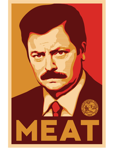Poverty is the root of all evil
-

The Dharma Bum - Vice President
- Posts: 11594
- Joined: Tue Aug 21, 2012 10:31 am
- Gender:

- Has thanked: 3285 times
- Been thanked: 617 times
- Political Leaning: Anarcho Communist
Re: Poverty is the root of all evil
yeah? my f**k phone can bring me breakfast in bed? and clean my toilet?
-

The Comrade - Vice President
- Posts: 18439
- Joined: Sun Aug 19, 2012 1:10 pm
- Location: Yugoslavia
- Gender:

- Has thanked: 1212 times
- Been thanked: 1889 times
- Political Leaning: Socialist
Re: Poverty is the root of all evil
“Liberty has not only enemies which it conquers, but perfidious friends, who rob the fruits of its victories: Absolute democracy, socialism.”
-Lord Acton
-Lord Acton
- These users thanked the author Libertarian602 for the post:
- eynon81
-

Libertarian602 - Senator
- Posts: 1304
- Joined: Mon Sep 22, 2014 4:29 pm
- Gender:

- Has thanked: 177 times
- Been thanked: 135 times
- Political Leaning: Libertarian
Re: Poverty is the root of all evil

Lifetime member of the NRA
-

lnrw - Governor
- Posts: 3207
- Joined: Sun Aug 26, 2012 6:38 am
- Gender:

- Has thanked: 361 times
- Been thanked: 259 times
- Political Leaning: Libertarian
Re: Poverty is the root of all evil
The Subversives
- These users thanked the author broken robot for the post (total 2):
- eynon81 • exploited
-

broken robot - VIP

- Posts: 2017
- Joined: Sat Sep 22, 2012 2:11 pm
- Location: CA
- Gender:

- Has thanked: 206 times
- Been thanked: 235 times
- Political Leaning: Socialist
Re: Poverty is the root of all evil
I wanted to respond to a few of those points:
1. "Imagined communities" is a great label, I like that. Thanks to the internet, media and the breakdown of traditional social institutions, people and particularly young people have a really complex web of loyalties. Existing family is still likely the most common and most basic community people belong to... but whereas that would have spread out into school/class/family networks, churches, political parties, labor organizations etc. in the past, now we are organizing along interests. You have the social justice camp, which is really fragmented, with people of all walks relating more to people with the same ideas rather than people of the same race or class. You have, as mentioned, militias and conspiracy groups. You have people getting together regularly because they belong to the same website, for instance, or getting a free beer because they're wearing a Chive shirt. You have people organizing socially around owning a Jeep, for God's sake, and some of the car forums are some of the biggest and most active online. And in almost all instances, these communities are engaging with the greater world - Chive and Reddit do regular charity drives and organize large-scale political action. Car forums are writing letters about Tesla being shut out of Michigan. People are using Facebook and Twitter all over the world to organize protests, direct action, even rebellion.
2. There is this whole other world, completely unrecognisable from the geographic world that supports it. This world exists online but has massive, mind-blowing, real world impacts. Nobody has really harnessed this politically yet. I mean there are lots of people using Twitter or Facebook to organize politically, and e-mail and text messages are also a huge part of how people do things... but what I mean is that nobody has tried to actually provide a common, open, egalitarian platform for all of these imagined communities to make decisions over. This needs to be done, and that, along with a focus on poverty, should be the basis of our organization.
3. You brought up conspiracists, and it's interesting, because I am pretty sympathetic these days. There really is a global network of capitalists making all of the most important economic decisions, blackmailing countries, and punishing disobedience. We call it the WTO or IMF. Further, the government really is spying on you.
1. "Imagined communities" is a great label, I like that. Thanks to the internet, media and the breakdown of traditional social institutions, people and particularly young people have a really complex web of loyalties. Existing family is still likely the most common and most basic community people belong to... but whereas that would have spread out into school/class/family networks, churches, political parties, labor organizations etc. in the past, now we are organizing along interests. You have the social justice camp, which is really fragmented, with people of all walks relating more to people with the same ideas rather than people of the same race or class. You have, as mentioned, militias and conspiracy groups. You have people getting together regularly because they belong to the same website, for instance, or getting a free beer because they're wearing a Chive shirt. You have people organizing socially around owning a Jeep, for God's sake, and some of the car forums are some of the biggest and most active online. And in almost all instances, these communities are engaging with the greater world - Chive and Reddit do regular charity drives and organize large-scale political action. Car forums are writing letters about Tesla being shut out of Michigan. People are using Facebook and Twitter all over the world to organize protests, direct action, even rebellion.
2. There is this whole other world, completely unrecognisable from the geographic world that supports it. This world exists online but has massive, mind-blowing, real world impacts. Nobody has really harnessed this politically yet. I mean there are lots of people using Twitter or Facebook to organize politically, and e-mail and text messages are also a huge part of how people do things... but what I mean is that nobody has tried to actually provide a common, open, egalitarian platform for all of these imagined communities to make decisions over. This needs to be done, and that, along with a focus on poverty, should be the basis of our organization.
3. You brought up conspiracists, and it's interesting, because I am pretty sympathetic these days. There really is a global network of capitalists making all of the most important economic decisions, blackmailing countries, and punishing disobedience. We call it the WTO or IMF. Further, the government really is spying on you.
-

exploited - Vice President
- Posts: 23035
- Joined: Fri Sep 14, 2012 2:32 pm
- Location: Ontario, Canada
- Gender:

- Has thanked: 2562 times
- Been thanked: 1837 times
Re: Poverty is the root of all evil
The Subversives
-

broken robot - VIP

- Posts: 2017
- Joined: Sat Sep 22, 2012 2:11 pm
- Location: CA
- Gender:

- Has thanked: 206 times
- Been thanked: 235 times
- Political Leaning: Socialist
-

Mr. Shaman - Senator
- Posts: 1858
- Joined: Sat Apr 19, 2014 10:22 am
- Gender:

- Has thanked: 0 time
- Been thanked: 93 times
- Political Leaning: Progressive
Who is online
Users browsing this forum: No registered users and 2 guests
